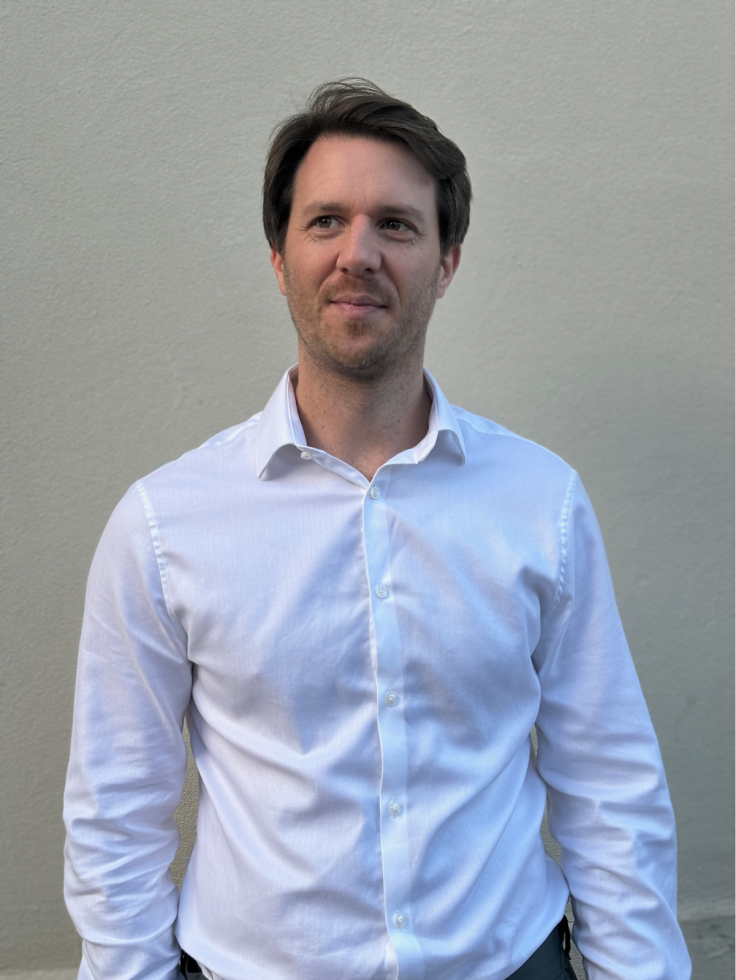From Physics to EdTech: Bryn Larkman's Vision For Revolutionizing Student Learning With AI-Driven Flow Learn
Flow Learn is a bold attempt to revolutionise how students prepare for standardised tests

Bryn Larkman is not your average tech entrepreneur. His approach to building products is deeply rooted in principles drawn from his study of physics and a long-term vision for what he calls "student and technology-driven learning."
His latest venture, Flow Learn, isn't just another entry into the crowded EdTech space—it's a bold attempt to revolutionise how students prepare for standardised tests, beginning with the SAT, by making learning personalised and frictionless.
From Physics to Product Innovation

Larkman's journey into the world of tech started in a perhaps unconventional place: physics. He brings a first-principles approach to product development, where assumptions are constantly questioned, and processes are rebuilt from the ground up. This analytical mindset underpins his belief in transformative product design, which has fueled his work on platforms like Globe, a trading exchange that processed $15 billion in transactions during his time as Head of Product, and Distributed, a managed marketplace for remote tech teams.
"I don't think you can create anything truly new if you don't step back and rethink how things work from the foundation," Larkman shared. This perspective allows him to tackle complex problems in creative, unconventional ways—something that's clear in his current project.
Flow Learn: AI-Driven, Student-Centered Learning
Flow Learn isn't just about preparing students for the SAT—it's about changing how students engage with learning. Larkman saw a gap in the market: even the best traditional tutors couldn't provide the level of continuous, personalised feedback that students needed. Flow Learn's AI platform fills that gap by adapting to each student's strengths and weaknesses in real-time.
"AI can now do what's been missing from EdTech for years—it can take in, 'think' and deliver bespoke, immediate textual feedback and guidance, tailored to each learner's needs," Larkman explained. "The ability to generate personalised content, the kind of one-on-one attention students typically only get from expensive tutors, but at a fraction of the cost, is what makes this so powerful."
The platform is not just about improving test scores. Larkman envisions a system that learns from each interaction and refines its teaching methods to align optimally with the student's needs—an endlessly adaptive tutor. It's a radical departure from traditional EdTech solutions, which often rely on only static content and multiple-choice questions.
A History of Building the Future
While Flow Learn may be Larkman's current focus, it's far from his first venture into product innovation. As Head of Product at Globe, a leading trading exchange backed by Y Combinator, he joined in its infancy—before it had any revenue or customers—and led the product development from $0 to over 100,000 customers and $15B+ transaction volumes.
Similarly, at Distributed, Larkman pioneered the product team that built a managed marketplace for remote tech professionals. This system addressed a critical bottleneck in the industry: the need to recruit, onboard, and manage high-value talent quickly and efficiently. His work there helped shape how organisations access and leverage remote teams, making it easier for companies to scale complex projects rapidly.
Rethinking the Rules of Product Development
Larkman's approach to product development is anything but conventional. While most product leaders rely on market research and competitor analysis, Larkman prefers to explore frameworks that push his thinking further. He often references mental models such as "causal cakes" and "first-principles" thinking, emphasising that creating an effect in education or product design requires more than one factor.
"There are no simple recipes or tests when building something transformative," he said. "You can't just copy, adjust, and A/B test a small change to see the revenue impact - not if it's a truly transformative change. For those features or products, the best you can do is build high conviction in the components and how you connect them theoretically. And that's very different from what typical product management toolkits include."
Larkman also talks about the concept of local vs. global maxima, a mental model that has influenced his view of innovation. "It's easy to get stuck optimising for small gains when you need to step back and look at the bigger picture. Sometimes, you must be willing to go down before you can climb a much bigger mountain."
Why EdTech, Why Now?
Larkman's decision to launch Flow Learn when EdTech has seen mixed results isn't without calculated risk. The education sector, especially at the K-12 level, has long been seen as rugged terrain for startups, with slow sales cycles and high demands for proof of efficacy. But Larkman needs to be more relaxed by these challenges.
"I've worked as a high school teacher, EdTech investment analyst, and entrepreneur before, and the key problem I see is friction—friction in adopting new tools and using them effectively," he explained. "AI eliminates that friction for learning software. With conversational apps, you're creating a truly intuitive, engaging experience that adapts to the student's needs in real-time."
A Visionary Ready to Redefine Learning
As Bryn Larkman builds Flow Learn, he brings with him not just years of product experience but a philosophy that challenges the very foundations of how we think about innovation. With AI as the driving force and a deep understanding of both the tech and education landscapes, Larkman's goal is clear: to provide students with an entirely new way of learning, one that is as adaptive and intuitive as it is effective.
His track record speaks for itself—Larkman knows how to turn ambitious ideas into reality. With Flow Learn, he's set on delivering an AI-powered learning solution that just might change how we educate the next generation.
© Copyright IBTimes 2024. All rights reserved.






















